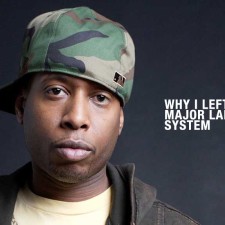Black Music Month, Day 23
On the remix of his #1 song “Step in the Name of Love” from 2003, R&B hit maker R. Kelly pronounces that “stepping is not just a dance, it’s a culture . . . it’s what we eat, think, and breathe.” Sounds a little silly right? Yeah, but the Chicago native was onto something. The ubiquity of the song in the airwaves that year brought a national awareness to something that African American Chicagoans knew well: that this social dance has beome a singular marker of postindustrial urban identity.
Who knew there was a wiki entry on the topic?:
Stepping is an urban dance that continues to evolve defining its unique style and culture within in the context of mainstream Swing dance. Stepping has gained popularity, particularly but not limited to the urban neighborhoods of America. Stepping makes reference to other urban styles of dance found throughout the United States larger enclaves in cities such as Detroit, Cleveland, Baltimore and Washington DC. In these and other cities one will find very similar customs and cultures accenting local dance movements which are very similar to movements of the Lindy Hop, West Coast Swing, Jitterbug and the Shag, just to name a few. Each city bears its own name such as the Bop, Hustle or Swingout. Although unique to its own style, customs and accents the basic structure involves the movement of triple steps, rock steps and anchors with the lead and follower synchronizing their steps in a complementary manner.
The importance of this dance culture to black Chicago is impressive. A “Stepper’s Set” describes an ongoing or one time event in which all of the recorded music played will be tailored to the execution of this style of dance. DJs have to do extensive research to animate a set properly. It will usually be a multi-generational affair: there might be easily a forty-year spread in the ages of the participants. This is unlike a typical “oldies night” or even a hip-hop night, both of which would tend to draw a target demographic. Stepper’s Sets provide a space to rehearse what it means to be urbane, cool, poised; one who is able to intuitively connect to and compliment not only one’s partner’s individualized moves but also to contribute to the space itself—to the atmosphere and the other couples occupying it. (Don’t bump into others or step on somebody’s new kicks. Don’t do it).
 Musically, a “stepper” (the kind of music that works in this environment) can be any R&B, soul, hip-hop, or smooth jazz cut that has a slow to medium tempo. One can see, nonetheless, more upbeat songs from the James Brown songbook used as well, but this encourages a more elaborate set of moves than the typical “stepper.” (For some reason James Brown works for just about everything in black Chicago—roller skating, steppin’—just everything). On a side point, the cultural work of all this “pleasure play” is crucial enough that dancers and roller skaters will “book” their partners in advance to be sure that time, space, and levels of expertise are sufficiently coordinated. (Again, don’t step in the name of love on my shoes).
Musically, a “stepper” (the kind of music that works in this environment) can be any R&B, soul, hip-hop, or smooth jazz cut that has a slow to medium tempo. One can see, nonetheless, more upbeat songs from the James Brown songbook used as well, but this encourages a more elaborate set of moves than the typical “stepper.” (For some reason James Brown works for just about everything in black Chicago—roller skating, steppin’—just everything). On a side point, the cultural work of all this “pleasure play” is crucial enough that dancers and roller skaters will “book” their partners in advance to be sure that time, space, and levels of expertise are sufficiently coordinated. (Again, don’t step in the name of love on my shoes).
Beyond its role in the production and celebration of local knowledge, steppin’ offers a stringent, though non-literary and non-verbal critique of the music industry itself. I’m thinking here, for example, of critiques of the smooth jazz style: i.e., it’s too formulaic, it’s watered down musically, and since a lot of it sounds like a rhythm and blues track, it lacks the semantic content that a song with lyrics offers. I’ve witnessed, steppers dancing to it, and something different happens. What the dancers are doing in the midst of their highly interactive, improvisatory moves is adding the semantic content to recordings that might otherwise be lacking. The ability to move steppin’ across genres links these different styles in the audience’s consciousness. This practice defies the logic of the music industry’s marketing strategies, which seek to contain, predict, and control the who, what, when, and where of musical consumption. In this case, however, the audience is exercising a degree of autonomy through their “practice”—in other words, in what they do with musical forms once they hit the airwaves.
I guess it is a culture, R.
I told you that James Brown just brings something out in Chicagoans. Don’t hurt yourself.
Tags: Chicago, music industry, R. Kelly, steppin', stepping



 Share On Facebook
Share On Facebook Tweet It
Tweet It




